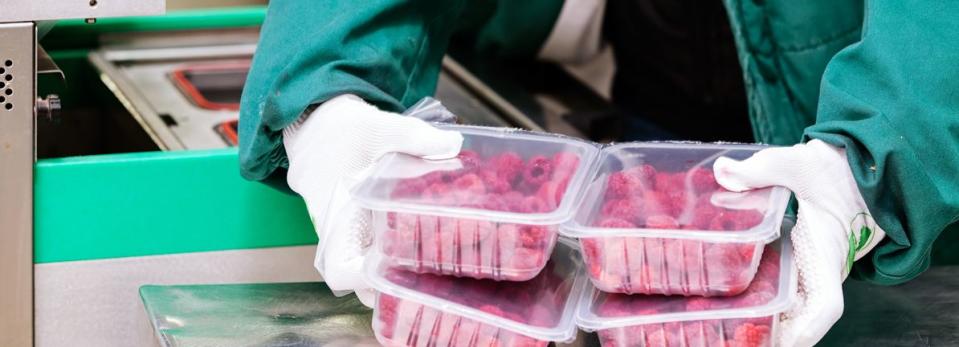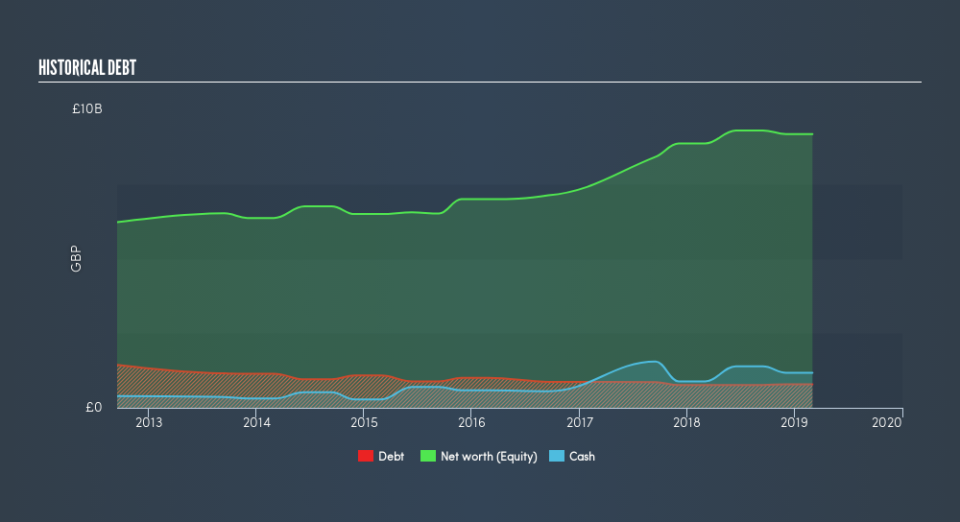Does Associated British Foods (LON:ABF) Have A Healthy Balance Sheet?

David Iben put it well when he said, 'Volatility is not a risk we care about. What we care about is avoiding the permanent loss of capital.' So it seems the smart money knows that debt - which is usually involved in bankruptcies - is a very important factor, when you assess how risky a company is. Importantly, Associated British Foods plc (LON:ABF) does carry debt. But the real question is whether this debt is making the company risky.
When Is Debt A Problem?
Debt is a tool to help businesses grow, but if a business is incapable of paying off its lenders, then it exists at their mercy. Part and parcel of capitalism is the process of 'creative destruction' where failed businesses are mercilessly liquidated by their bankers. While that is not too common, we often do see indebted companies permanently diluting shareholders because lenders force them to raise capital at a distressed price. Having said that, the most common situation is where a company manages its debt reasonably well - and to its own advantage. When we think about a company's use of debt, we first look at cash and debt together.
View our latest analysis for Associated British Foods
What Is Associated British Foods's Net Debt?
The chart below, which you can click on for greater detail, shows that Associated British Foods had UK£775.0m in debt in March 2019; about the same as the year before. But it also has UK£1.18b in cash to offset that, meaning it has UK£400.0m net cash.
How Strong Is Associated British Foods's Balance Sheet?
Zooming in on the latest balance sheet data, we can see that Associated British Foods had liabilities of UK£2.95b due within 12 months and liabilities of UK£1.13b due beyond that. Offsetting these obligations, it had cash of UK£1.18b as well as receivables valued at UK£1.44b due within 12 months. So its liabilities total UK£1.47b more than the combination of its cash and short-term receivables.
Of course, Associated British Foods has a titanic market capitalization of UK£18.1b, so these liabilities are probably manageable. However, we do think it is worth keeping an eye on its balance sheet strength, as it may change over time. Despite its noteworthy liabilities, Associated British Foods boasts net cash, so it's fair to say it does not have a heavy debt load!
The good news is that Associated British Foods has increased its EBIT by 2.4% over twelve months, which should ease any concerns about debt repayment. There's no doubt that we learn most about debt from the balance sheet. But it is future earnings, more than anything, that will determine Associated British Foods's ability to maintain a healthy balance sheet going forward. So if you're focused on the future you can check out this free report showing analyst profit forecasts.
Finally, a company can only pay off debt with cold hard cash, not accounting profits. While Associated British Foods has net cash on its balance sheet, it's still worth taking a look at its ability to convert earnings before interest and tax (EBIT) to free cash flow, to help us understand how quickly it is building (or eroding) that cash balance. In the last three years, Associated British Foods's free cash flow amounted to 49% of its EBIT, less than we'd expect. That's not great, when it comes to paying down debt.
Summing up
We could understand if investors are concerned about Associated British Foods's liabilities, but we can be reassured by the fact it has has net cash of UK£400m. So we don't have any problem with Associated British Foods's use of debt. Over time, share prices tend to follow earnings per share, so if you're interested in Associated British Foods, you may well want to click here to check an interactive graph of its earnings per share history.
If, after all that, you're more interested in a fast growing company with a rock-solid balance sheet, then check out our list of net cash growth stocks without delay.
We aim to bring you long-term focused research analysis driven by fundamental data. Note that our analysis may not factor in the latest price-sensitive company announcements or qualitative material.
If you spot an error that warrants correction, please contact the editor at editorial-team@simplywallst.com. This article by Simply Wall St is general in nature. It does not constitute a recommendation to buy or sell any stock, and does not take account of your objectives, or your financial situation. Simply Wall St has no position in the stocks mentioned. Thank you for reading.

 Yahoo Finance
Yahoo Finance 
